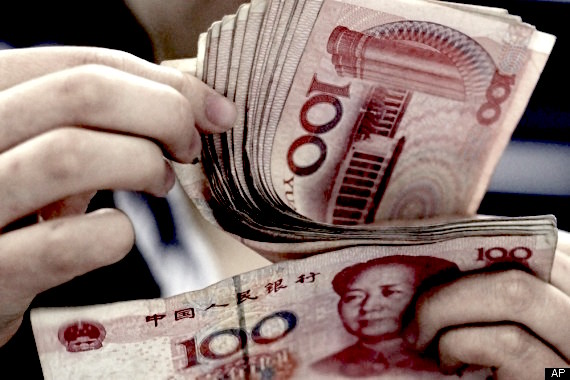China does things differently and many times, unexpectedly. The country has been in news for many reasons: surpassing the US economy in 2014, being a part of two banks initiated for infrastructure development in the Asian region, the recent stock market crash and now, the sudden announcement of the devaluation of its currency, known as the yuan or renminbi.
On August 11, 2015, China’s central bank lowered the value of its domestic currency by changing the way it calculates yuan’s daily fixing against the US dollar. The fixing of the currency will now be based on yuan’s closing on the previous session, making it more market-based and more aligned with the market supply and demand. The intense currency movements by China exhibit that the country can create sudden fluctuations in global markets to flag its domestic economic growth. While China might be trying to fix its own domestic growth, it raises some serious concerns for other countries.
Many are confident that the devaluation of yuan indicates the growing financial troubles in China, but the Chinese central bank thinks otherwise. The central bank argues that the change is a one-time event in order to keep China’s exchange rates in par with the free market practices. While this may be true, the timing for devaluation couldn’t have been worse. The news of devaluation comes at a time when many investors were already worried about the repercussions of the interest rate hike by Fed in September this year, which could have further made yuan cheaper. The devaluation affects the trading countries in a large way eventually leading to currency wars that may be unfair to already suffering economies like those in the Eurozone. The foreign exchange markets are already showing signs of weakness as they hit a low point, which has never been witnessed since the Asian financial crisis. European Union has applauded this move by China calling it a reformatory measure even though it witnessed a fall in its shipments from China due to China’s economic slowdown this year.
The currency devaluation by China has created a stir in the European Stock Markets with major auto and mining stocks getting adversely affected..
Currently, Japan and Europe are both engaged in quantitative easing (QE) to spur economic growth within their domestic markets. These countries are already lowering their currencies to make commodities more affordable in order to expand domestic liquidity. With the devaluation in addition to the QE, since Germany and Japan are importing 8% and 10% respectively, to China, the devaluation of yuan will only deteriorate matters further for them. With a weak domestic currency in China, other economies that are competitors of Chinese exports could also lower their currency in order to remain competitive in the trade market. The Chinese goods in foreign markets will get cheaper and more affordable. Even, foreign companies that run a joint venture in China may not face much impact as they may face higher prices only for the components they buy outside China. But countries that are major importers to China are affected the most since the Chinese buyers will find foreign goods more expensive after devaluation of yuan. Even companies that have sales in China could find their profits shrinking or even worthless when converted in their home currency
One of the biggest impacts of the devaluation may be on the oil prices. Devaluation of yuan will make many imported commodities more expensive. The magnitude of this influence may also be huge since China is one of the world’s largest consumers of commodities. This could lead to a market panic and eventually competitive devaluation across competitors, aggravating the existing problem.
The unexpected move by Chinese authorities has been received with strong reactions from many countries and regulators, particularly the US lawmakers. Chinese authorities might consider devaluation to be a smart move in order to compete in the global markets but it also highlights the fact that by ‘controlling’ the value of domestic currency, a country cannot achieve the benefits of ‘free’ markets and promote healthy competition across the world.
© 2015 Deena Zaidi. All rights reserved.
